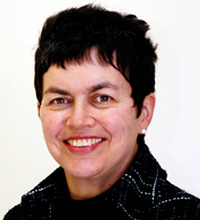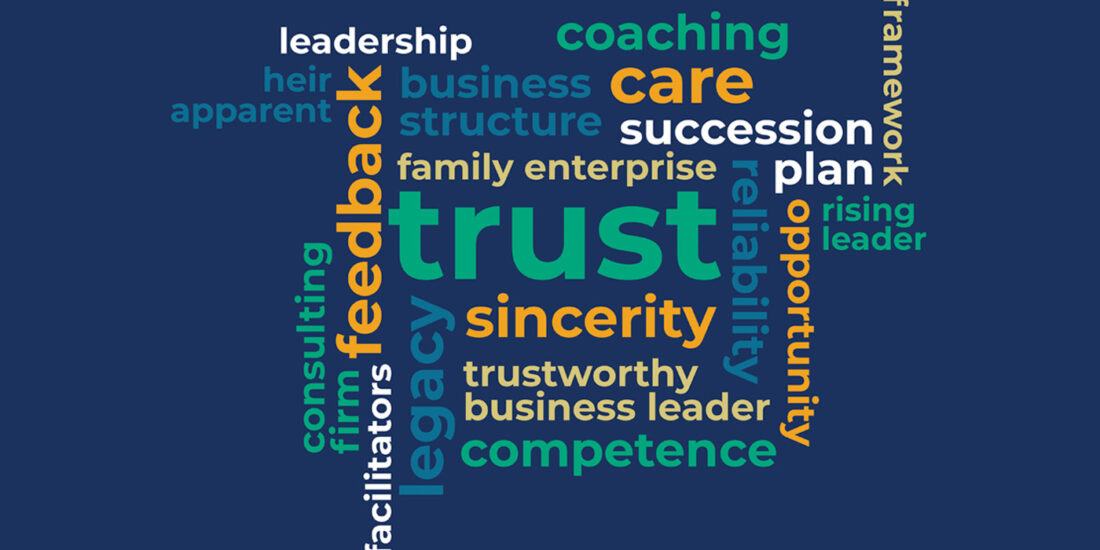Advising a Female Leader in a Family Firm: A case study
Women do it differently, we’re told, and this is true of many influential women in family firms. They often succeed by directing attention away from themselves, telegraphing moves to their partner – typically the CEO – to creating the change they know the firm needs. They change the firm because they have the CEO’s trust rather than through displays of expertise, a visible presence, and a fancy job title.
Cass Harbridge*, of Harbridge Retail Produce* in NSW, Australia, is a case in point. Harbridge Retail Produce, which began as a small fruit shop in the early 1970s, now employs about 1,000 people. As well as regular fruit and vegetables lines, it sells value-added products such as freshly squeezed juices and exotic Chinese vegetables in 22 supermarket-style outlets across the state. Cass and her husband Dan, the CEO, come from a long line of entrepreneurs: their fathers and Cass’s mother all started their own businesses. Dan originally planned to go into his father’s business but his father got an offer he couldn’t refuse and sold the business. Dan decided he should get into a business that ‘the big boys didn’t do well, that didn’t take a lot of capital to get into, and that produced cash.’ Fruit and vegetable retailing fit that description, so Dan worked for a fruit retailer for free to learn the business, then started his own firm.
That was 27 years before Cass entered the business. Cass had decided that while Dan was getting the business off the ground, she would join an established firm to ‘learn the corporate side.’ However, as she says, ‘the problem was that in those days, the 1970s, the minute you had babies the clear assumption was that you would leave your job. So I left. I had five children very rapidly, but worked the whole time doing various things. I worked in mum’s business.’
Cass also started a communications and public relations firm. Both Dan’s and Cass’s firms were very successful for a while, but then both hit problems at the same time. Dan’s business faltered in the currency collapse of the late 1980s, and Cass’s biggest client went bankrupt. Cass rapidly positioned herself as the family breadwinner, becoming head of the alumni department of a major university. From there she was headhunted for a high-profile government job where she guided many public sector agencies through major change.
Dan’s business recovered but, worried that things could easily fall apart again, he asked Cass to join the family business to ‘corporatize’ it. Recalling those early days, Cass talks about how alien and secretive it felt to her. It was, she says, ‘a closed book’ with virtually no documentation of its systems and procedures.
But it was also intriguing. Cass was amazed that it had worked for so long with so few formal systems, and she had to learn how the industry operated before she could change their firm. She was convinced that the traditional cash basis of the business – a big part of its competitiveness – had to change now that the government planned to introduce a universal goods and services tax. Ordinary business disciplines were also lacking: there was no provision for consultation and her husband’s management style reflected a person who was ‘a bit of a dictator, a strong and silent type who didn’t like change.’ At the same time, Dan’s staff would come and speak with him and make him their confidant. As Cass says, ‘that’s probably why it all worked, having 500 employees and no systems – they felt part of the family.’ Finally, the sheer size of the business was intimidating. As Cass says, ‘I had run my own little business but Dan’s business was so much bigger.’
For advisors seeking to assist Cass through these challenges, evidence-based advice would entail:
1. Encouraging her to understand her situation through a framework such as Curimbaba’s ‘dynamic roles of women managers in family firms.’ [1] Curimbaba noticed that women managers in business families tended to fall into one of three categories:
- Anchors are women whose entire career is focused on the family business. People often take Anchors for granted but they are too necessary to the firm’s functioning to be completely overlooked.
- Professionals enter the family business with a strong awareness of their market value and the skills they bring to it, and always have an exit route from the business.
- Invisibles are women who have difficulty getting their contribution recognised. They are genuinely overlooked and often can do little to rectify the situation.
Cass would likely see that her role in the family firm is clearly that of a Professional. She has been invited into the business and has always had career options outside of it. She brings something special to the business that is not easily available from anyone else.
2. Not confining herself to operating from just one of these roles for women in family firms.
Indeed, Curimbaba saw that women can move from one role to another and that this can be a source of flexibility and influence. An Anchor, for example, may become aware of her worth outside the firm and evolve into a Professional. Equally, however, she could slip into the thankless role of an Invisible. In trying to change how Harbridge Retail Produce operates, Cass, the Professional, will find it more practical to adopt the sources of power and influence that more naturally flow from an Anchor position. Anchors may be familiar figures, almost taken for granted, but they know the family business from the inside. Moreover, they are typically close to and have influence over those in more visible positions of power. Cass is the longstanding confidante of her husband, the CEO, and she is someone whose advice he knows he needs. Both of them know that Cass can bring to the business the skills and systems it lacks. Acting quietly as an Anchor rather than overtly as a Professional, would allow Cass to get things done through the CEO, that is, subtly and without antagonizing people who are likely to resist demands for change from an apparent ‘outsider’.
Counseling Cass about the need for personal flexibility and subtlety in effecting change can be taken further still.
3. Being more than an ordinary manager by revitalizing and professionalizing the firm. In short, to act as a leader and entrepreneur.
Curimbaba’s research did not look at women in family firms in entrepreneurial roles, but Barrett and Moores, in their book Women in Family Business Leadership Roles, [2] added Entrepreneur to Curimbaba’s categories of Anchor, Professional and Invisible to account for this aspect of family business women’s experience. In the case of Harbridge Retail Produce, to act as a revitalizing force in an environment where family culture is so entrenched will require working with rather than against the culture. Dan’s personality, his autocratic but paternalistic management style, and lack of exposure to formal business systems and practices, suggests that Cass could best change it by adopting the modus operandi of an Anchor. Rather than taking the high profile stance of a traditional leader and entrepreneur, Cass needs to direct attention away from rather than towards herself to change how the firm operates, according to Barrett and Moores. Of course, she needs to avoid the powerless role of an Invisible, but there is little danger of that: Dan formally invited her to join the firm and knows it is at risk without her.
But…here is what actually happened. Cass acted like an Anchor, and at times could almost have been mistaken for an Invisible. ‘We’d be sitting in meetings – even meetings were an innovation then – and people would be about to leave when I’d say, ‘we have to do something about occupational health and safety’ and people would roll their eyes. But later, Dan would talk to one or two about what I said, and they’d start to do things differently.’ Cass always denied she was a leader in the firm. ‘He’s the strategist,’ she would say, gesturing towards her husband. She knew from the start that better systems, proper attention to issues such as occupational health and safety and payroll accountability would only ever be accepted if they were mandated by ‘the boss’ rather than by herself, the upstart and newcomer.
The evidence of much research also suggests that Cass should be aware of unspoken values in how the family firm runs. In referring to her husband’s ‘authoritarian but caring’, ‘silent but hands-on’ style of leadership as the basis of the firm’s success, Cass showed an intuitive grasp of the positive value of ‘familiness:’ the special resources arising from family involvement and interactions in the firm. She should be advised, however, that this same familiness often makes change both difficult and necessary. This is because there is a downside to familiness: family members sometimes threaten the firm’s interests through informal, even secretive activities, and resisting new agendas for success. By casting herself as an apparently minor player on the family business stage, Cass evolved into her family firm’s quiet entrepreneur. She played a Professional role from the position of Anchor, out of the spotlight, often backstage. In doing so, she allowed the firm to undertake its own evolution, to become fitter, and to survive.
*Names of characters and the firm have been disguised.
About the contributor
 Mary Barrett is a professor of management at the School of Management, Operations and Marketing at the University of Wollongong, Australia where she teaches general management, human resource management and business communication. Her research interests include women as entrepreneurs, especially in the family business setting. She can be reached at mbarrett@uow.edu.au.
Mary Barrett is a professor of management at the School of Management, Operations and Marketing at the University of Wollongong, Australia where she teaches general management, human resource management and business communication. Her research interests include women as entrepreneurs, especially in the family business setting. She can be reached at mbarrett@uow.edu.au.
[1] Family Business Review; Sep 2002; Vol. 15, No. 3; pg. 239.
[2] Barrett, M.A. and Moores, K. (2009), Women in Family Business Leadership Roles: Daughters on the Stage. Edward Elgar, Cheltenham.




